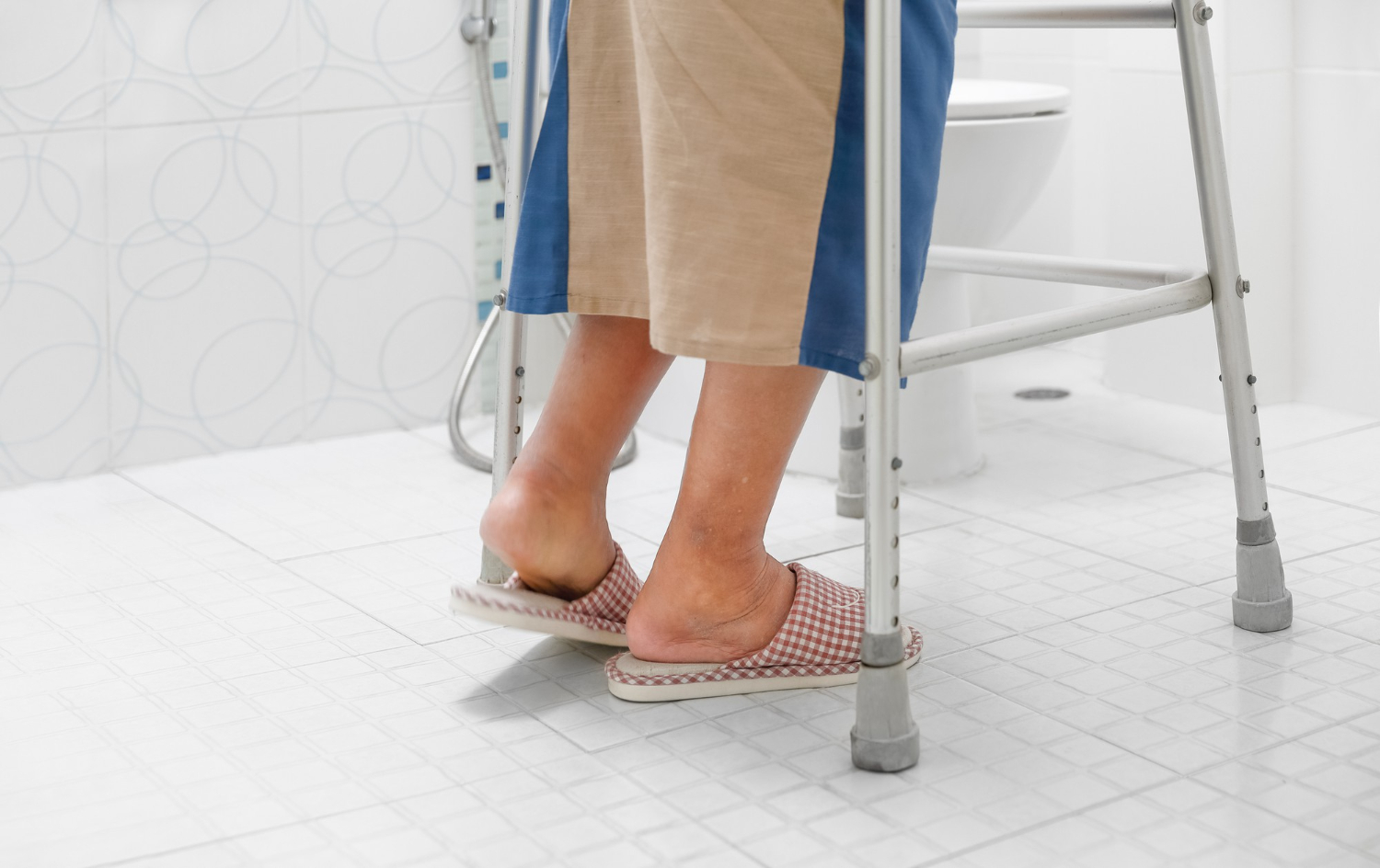Family, Children & Elderly
Edema In Old Age
By H.S. (staff writer) , published on September 25, 2021

Medicine Telehealth Health
Sometimes, older people experience swelling in their body parts which can be uncomfortable. In medical terms, this swelling is known as edema. When the body tissues become filled up due to the trapped excessive fluid, this condition is called edema or puffiness of hands, ankles and feet.
Edema usually occurs in older people as a result of inflammation or injury. Edema occurs in almost every part of the body but usually occurs in the legs of older individuals due to the leaking of fluid [1].
What Are The Causes Of Edema In Older Adults?
The risks factors of edema in the elderly include:
-
Eating food with excessive salt
-
Sitting in one position for a longer time
-
Blood clotting
-
Pregnancy
-
Genetic factors
-
Surgery of any part of the body
-
Heart diseases such as congestive heart failure
-
Liver diseases such as cirrhosis
Some health conditions can also be a risk factor for edema in seniors:
-
Any tumor in the body
-
Cirrhosis
-
Kidney diseases
-
Menopause
-
A weakness of the legs
-
Poor Lymphatic system [2]
Intake of medications also results in the puffiness of ankles and feet:
-
Medications for high blood pressure
-
Medications like memantine and pramipexole for dementia or Alzheimer’s disease
-
Ca2+ channel blockers
-
NSAIDs
-
Steroids
-
Medications for diabetes
What Are The Symptoms Of Edema?
The symptoms of edema include:
-
Puffiness or swelling of the skin
-
Aching ankles and body parts
-
Changes in the weight
-
Stiffness of joints
-
Stretched skin
-
The heaviness of the arms and legs
-
Increase in the size of the abdomen
Complications Caused By Edema:
If edema is left untreated in older people, it can lead to several health complications:
-
Greater risk of skin ulcer
-
Reduction in the circulation of blood
-
Very less elasticity of blood vessels, especially capillaries
-
Difficulty walking
-
Permanent stiffness of the joints
-
Permanent swelling leading to pain.
Edema Treatment For Elderly:
The best way to treat edema is to get rid of the conditions that are causing it. Your doctor can also prescribe some medications called diuretics (water pills). The vital function of these diuretics is to flush out excess salts and sodium from the body through urine [3].
Edema patients are also advised to wear compression garments and do specific exercises.
Lifestyle Habits To Reduce Edema:
The following are some self-care tips that may help reduce edema:
-
Eat A Low-Salt Diet: Take foods that are rich in minerals, vitamins, and antioxidants. Such foods include leafy veggies, pineapple, pumpkin, grapes, onions, and beets. Moreover, use citrus or fresh herbs instead of salt.
-
Exercise Regularly: The body parts affected by edema should be moved by exercising daily so that puffiness and swelling can be reduced. In this way, the excess fluid can be eliminated from body tissues as well as the cardiovascular system is improved.
-
Massage/Compression Therapy: Massage the body parts affected by edema to circulate the flow of blood. You can apply the pressure too. Compression therapy can also be used.
-
Practice Good Skincare: You should clean and protect the affected area with socks, shoes, and clothing to prevent further infections and injuries [4].
References:
-
Lent-Schochet D, Jialal I. Physiology, Edema. StatPearls. Treasure Island (FL): StatPearls Publishing; 2021 Jan-. Retrieved from: https://www.ncbi.nlm.nih.gov/books/NBK537065/
-
Koomans HA, Boer WH. Causes of edema in the intensive care unit. Kidney International Supplement. 1997 Jun 2(59).
-
O'Brien JG, Chennubhotla SA, Chennubhotal RV. Treatment of edema. American family physician. 2005 Jun 1;71(11):2111-7.
-
Trayes KP, Studdiford J, Pickle S, Tully AS. Edema: diagnosis and management. American family physician. 2013 Jul 15;88(2):102-10.
Find articles related to: Medicine Telehealth Health
More articles about Family, Children & Elderly
Back to the Health Tips Index




